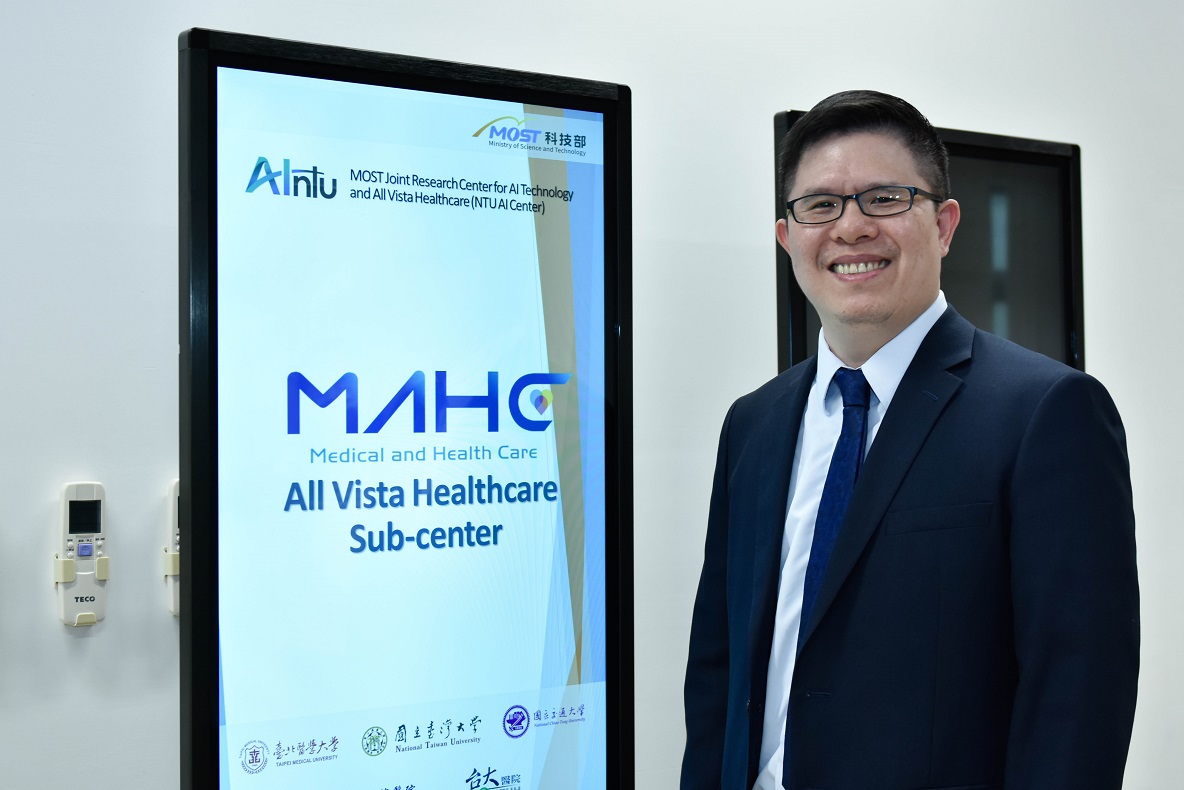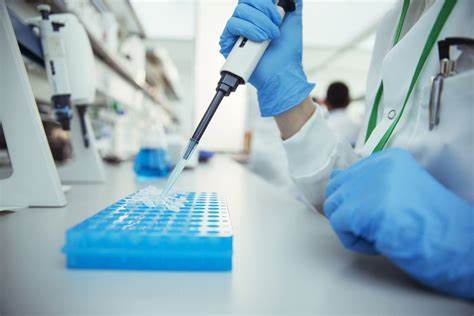
Photo Credit: CASE Taiwan
According to 2018 WHO statistics, approximately 3 million people around the world died from Chronic obstructive pulmonary disease (COPD). Professor Fei-Pei Lai and his research team from MOST Joint Research Center for AI Technology and All Vista Healthcare at National Taiwan University (AINTU) have applied AI technology, big data, and cloud computing to design a medical service platform. This platform provides personalized patient service and offers predictions of the onset of the disease in the next seven days through smartwatches and other wearable devices. The goal of the platform is to decrease the fatality rate of COPD.
Above is just one example of many research outcomes from 11 AI BioMed research teams of AINTU All Vista Healthcare Sub-center (MAHC). The Ministry of Science and Technology Center for Global Affairs and Science Engagement (MOST GASE) had an exclusive interview with MAHC to explore more details about how its research teams develop AI Medicine and cooperate with the industry successfully.
AI X BioMed: Industry Collaboration and International Partnership
To build an international innovation ecosystem on AI research, MOST subsidized National Taiwan University (NTU), National Tsing Hua University (NTHU), National Chiao Tung University (NCTU), and National Cheng Kung University (NCKU) to establish four AI innovation research centers in 2018. AINTU, the research center of NTU, has two major R&D focuses and set up two sub-centers, naming Artificial Intelligence Technology (AIT) and All Vista Healthcare (MAHC).
Dr. Po-Yuan Tseng, CEO of MAHC, pointed out that the center aims to build an international research ecosystem to carry out cross-disciplinary, cross-unit, and cross-international cooperation models on cultivating talents and establishing innovative startups. There is a total of 11 research teams under MAHC with a wide range of research themes, including medical image, precision drug use, medical imaging, decision support, and AI-ethical, legal, and social impact.
Commercialize R&D Techniques to Safeguard Public Health
Dr. Tseng said that MAHC’s research teams have extraordinary industry-academic collaboration. Dr. Sheng-Lung Huang from NTU collaborated with Apollo Medical Optics on developing a technique to detect skin cancer cells through high-resolution 3D images without conducting a biopsy. Dr. Ruey-Feng Chang and his team from NTU transferred the Automated Breast UltraSound Viewing System to TaiHao Medical Inc. and the commercialized product has successfully been approved by the US FDA. Last but not least, Dr. Yu-Chuan Li from Taipei Medical University (TMU) established a startup company, Aesop Technology, that uses AI technology to interpret the prescription and ensure the safety of patients’ medication use.
Apart from AI decision support technology, MAHC’s NTU hospital team also collaborated with the industry on implementing AI technology in emergency medicine to provide fast and accurate medical service. This can help the hospital predict ER patients’ status and rates of cardiac arrest, assist doctors on making clinical decisions and help the hospital to best use its medical resources.
Dr. Tseng that MAHC has already conducted more than 30 industrial-academic collaborations on technology transfer, techniques service, and startup establishments, which has brought in more than 50 million dollars of profit. The research center is now seeking funding for the second phase of the project to contribute to Taiwan’s AI Biomed development.
Smart Medicine: Taiwan can Help
MAHC has close collaborations with international medical research centers, such as signing MOU and collaboration agreements with Stanford University School of Medicine, Harvard Medical School, and the University of Toronto. The center has also partnered with Tohoku University and Kyoto University. The collaborations include research on translational medicine, emergency prediction, and dementia. In alignment with the government’s New Southbound policy, MAHC has also collaborated with Southeast Asian countries, such as Singapore, and seek cooperation with local research teams and industry.
During the COVID-19 outbreak, MAHC’s MeDA team, leading by Dr. Wei-Chung Wang, collaborated with NVIDIA and Massachusetts General Hospital in the US and 20 other hospitals around the world to apply Taiwan’s health insurance data in developing the first COVID-19 AI model in the world. With such a model, medical staff can predict the oxygen need of a COVID-19 patient with 94% accuracy and the research outcome is open to the world.
Although the world is hit hard by the pandemic, Dr. Tseng still expects that MAHC to continue to expand its R&D power and develop multidimensional themes of precision health. He hopes that MAHC can help protect national public health and strengthen collaboration with various industries and the international community. The research center will also continue to commercialize medical techniques and promote Taiwan’s smart medicine strength to the world in the post-pandemic era.




